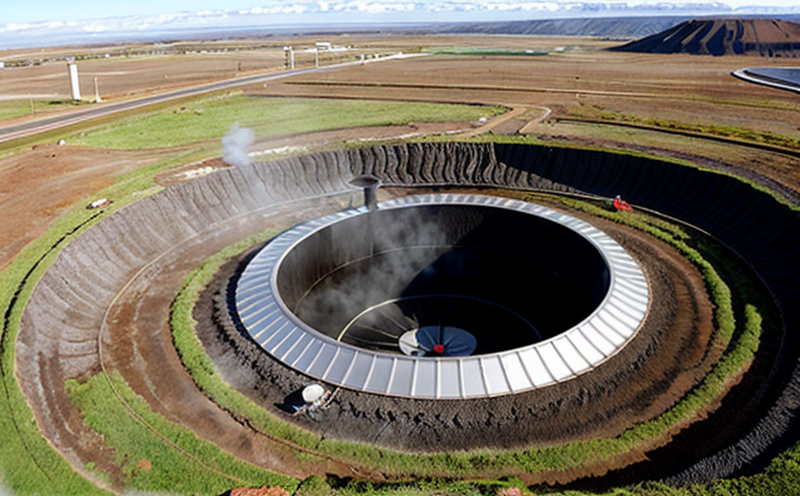EN 1999 Aluminium Alloy Testing of Heat Exchanger Components
The EN 1999 series of standards is specifically designed to address the structural requirements and design codes for geothermal heat exchangers. This service focuses on the detailed testing of aluminium alloy components used in these systems, ensuring they meet stringent performance criteria under various environmental conditions. The importance of this service cannot be overstated as it directly impacts the reliability, efficiency, and longevity of geothermal energy systems.
Aluminium alloys are chosen for their excellent thermal conductivity, high strength-to-weight ratio, and resistance to corrosion in harsh environments such as those found near geothermal wells. However, these advantages come with challenges: the heat exchanger components must withstand extreme temperatures, pressures, and corrosive fluids without compromising structural integrity or performance.
The EN 1999 series incorporates advanced testing methodologies that simulate real-world conditions experienced by geothermal systems. This includes high-temperature cycling tests to assess thermal fatigue resistance, pressure endurance tests to evaluate strength under operating pressures, and electrochemical corrosion assessments to ensure durability in corrosive environments. These tests are essential for identifying potential weaknesses before the components enter service.
Testing these components according to EN 1999 ensures compliance with international standards, thereby enhancing trust and confidence among stakeholders involved in geothermal energy projects. The results of such testing provide critical data that informs design improvements and helps prevent costly failures during installation or operation.
In summary, EN 1999 aluminium alloy testing is vital for ensuring the reliability and performance of heat exchanger components used in geothermal systems. By adhering to these standards, manufacturers can produce high-quality products that meet stringent requirements set forth by industry experts worldwide.
Why It Matters
The quality and durability of aluminium alloy components in geothermal energy systems are crucial factors influencing the overall success of any geothermal project. Poorly manufactured or tested heat exchanger parts can lead to premature failure, increased operational costs, reduced efficiency, and even safety hazards.
- Increased Operational Costs: Frequent replacements due to component failures result in higher maintenance expenses over time.
- Premature System Deterioration: Substandard materials may degrade faster than expected, necessitating early system upgrades or retrofits.
- Safety Concerns: In extreme cases, faulty components could pose risks to personnel working with the geothermal equipment.
Conducting thorough EN 1999 compliance testing not only mitigates these issues but also contributes positively to environmental sustainability by promoting the use of reliable and efficient technology. It ensures that energy systems operate at optimal levels, contributing to better resource utilization and reduced carbon footprints associated with geothermal power generation.
Scope and Methodology
| Test Parameters | Description |
|---|---|
| High-Temperature Cycling Test | This test simulates the thermal cycling conditions experienced by heat exchanger components during operation, ensuring they can withstand repeated heating and cooling cycles without failure. |
| Pressure Endurance Test | A pressure endurance test assesses the structural integrity of the component under operating pressures, confirming its ability to maintain shape and strength over extended periods. |
| Electrochemical Corrosion Assessment | This method evaluates how well the material resists corrosion in a simulated geothermal fluid environment, providing insights into long-term performance expectations. |
The testing process involves precise specimen preparation following strict guidelines provided within EN 1999. This includes cleaning and conditioning the samples before exposure to specific test conditions. Once tested, detailed reports are generated summarizing findings from each evaluation criterion, offering actionable recommendations for improvement where necessary.
Quality and Reliability Assurance
- Stringent Compliance: All tests conducted adhere strictly to the requirements outlined in EN 1999, ensuring accurate and reliable results.
- Expertise and Experience: Our team comprises experienced professionals familiar with all aspects of geothermal testing, providing comprehensive support throughout every stage of your project.
The rigorous nature of our quality assurance measures guarantees that only the highest standards are applied during each assessment. This commitment to excellence ensures that you receive accurate, reliable data upon which sound decisions can be made regarding component selection and system design.





